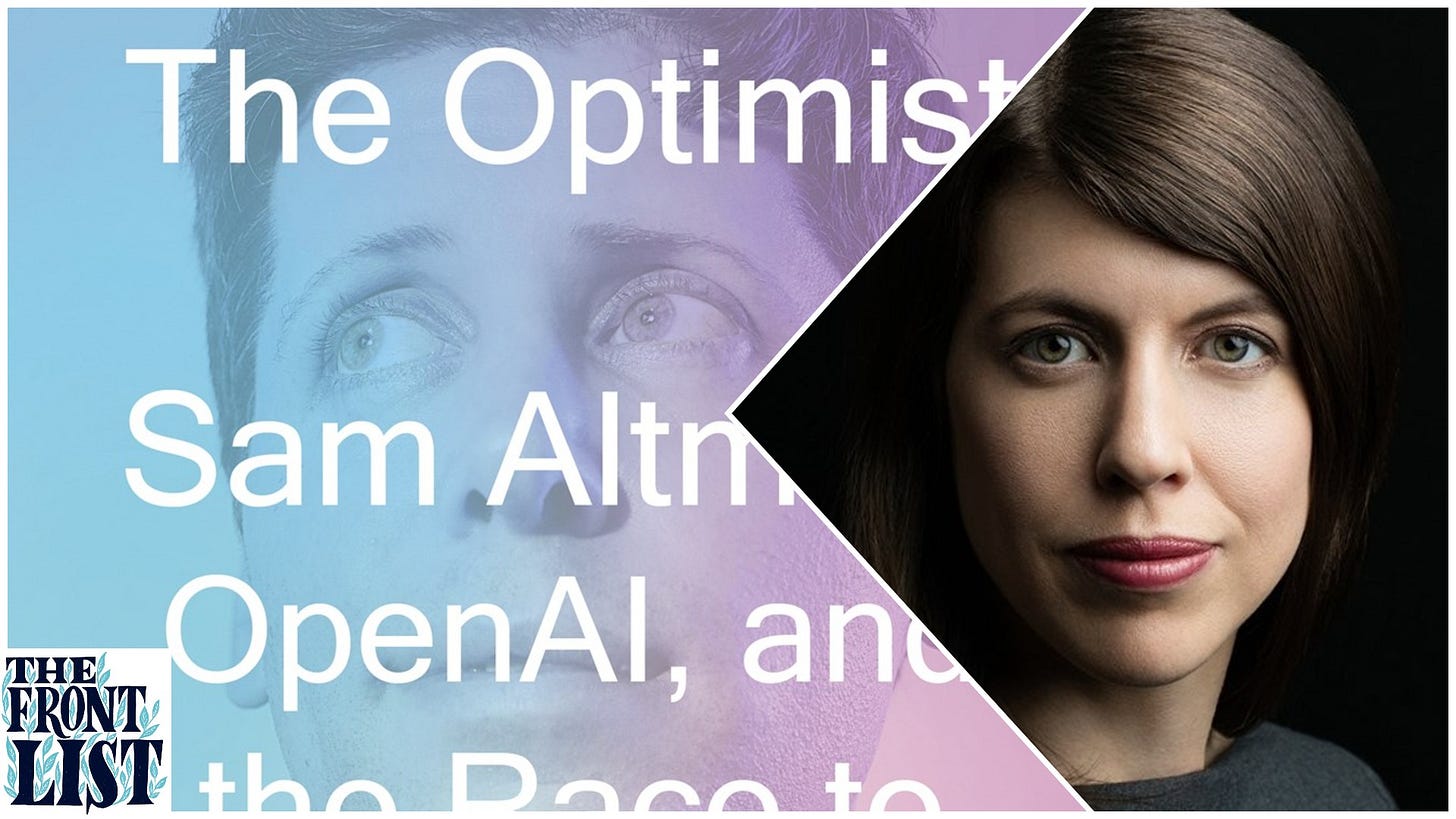Exclusive: 1-on-1 with Sam Altman's first biographer
Behind the book with Keach Hagey, author of 'The Optimist: Sam Altman, OpenAI, and the Race to Invent the Future.'
As ChatGPT and other generative AI tools continue “disrupting” journalism, criticism, and the publishing industry, the first biography of OpenAI CEO Sam Altman — The Optimist: Sam Altman, OpenAI, and the Race to Invent the Future — hits bookshelves today.
Keach Hagey’s reporting at the Wall Street Journal has already helped lift the silicon curtain of secrecy around the billionaire, and I’m happy to report her clear-sighted investigation of Altman’s life avoids the hagiographic lens Walter Isaacson put to work in his biography of Elon Musk. It’s also a quick, compelling look at how Altman has convinced so many people to give him money despite his long-distance relationship with the truth. On some pages, it made me more optimistic about the future. On others, it scared me.
For The Frontlist, I asked Hagey about how writing The Optimist changed her perspective on Altman and AI.
What drew you to Altman as the subject of your second book?
I was assigned a profile of Altman for the Wall Street Journal not long after ChatGPT went viral. I found it very strange that his father was almost never mentioned in the press about him, so that’s where I started digging.
What surprised you most during your research and reporting?
How ground zero for this entire story seems to be the listserv run in the 1990s by a group of techno-utopian libertarians called the Extropians — who also knew how to throw a pretty killer house party.
Did the process of writing this book make you more or less optimistic about Altman's ability to deliver AGI in the near-future?
It made me more confident in Altman’s fundraising ability. He is truly a generational talent when it comes to convincing people that he can see the future and so they should give him money. While I was writing, I was somewhat skeptical about AGI. But since shipping the manuscript, the tools have continued to improve and there have been some eerie moments.
Did it make you more or less optimistic about the future in general? Why?
OpenAI and generative AI generally are the first thing in my adult life to truly give Google a run for their money. That suggests that no monopoly — as the U.S. government called Google — is forever, which does make me optimistic.
It remains to be seen whether the AI companies will be better stewards of intellectual property than their predecessors. So far, the indications aren’t great, but there’s still time to build a fair system.
Forthcoming in The Frontlist
Behind the book with Stephen Graham Jones, author of The Buffalo Hunter Hunter (Saga Press)
Behind the book with Lincoln Michel, author of Metallic Realms (Atria Books)
Summer book preview



